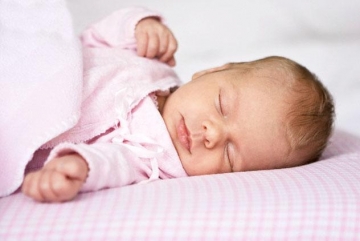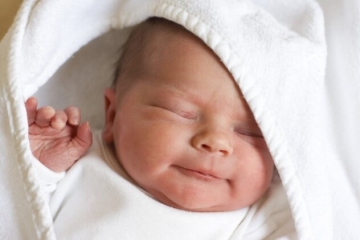A baby's sleep can be considered one of the most difficult physiological rhythms in the human body.
In children, the correct rhythms of sleep, that is, the alternation of sleep and wakefulness, are gradually established. Significant changes occur in the sleep structure of children between 2 and 4 months. From the 2nd to the 6th month, children develop a circadian rhythm of sleep and wakefulness. A normal sleep cycle occurs approximately every 24 hours. This period is called circadian rhythm. The circadian form of biological rhythm is carried out by means of "biological clocks" gained by the organism during ontogeny under the influence of light and temperature.
Sleep is one of the most natural, regular and important conditions in the human body. Sleep, like other processes in the body, is controlled by hormones and highly active substances. Thus, at night, the hormone melatonin reaches its highest level and causes a person to fall asleep and fall into a deep sleep. Other substances affect the process of waking up, changing the deep and light phases of sleep.
People spend 1/3 of their lives asleep. The importance of sleep during childhood should be emphasized. The child should have about 18 hours a day, and in one-year-olds this number should decrease to about 13 hours. Interestingly, this pattern is also observed in mammals: early childhood is characterized by minimal physical activity and more sleep, and as they grow older, it increases activity and shortens sleep.
According to American researchers, despite the fact that 3/4 of parents complain of nighttime sleep disorders in their children, only 10-14% of these families seek medical and psychological help. Unfortunately, parents try to solve their own sleep problems by thinking that their sleep disorders will go away one day or by not knowing which doctor to go to. Based on the figures in the table, the actual sleep duration in children and adolescents appears to be significantly different from the recommended sleep duration.
Decreased sleep during childhood has been observed in more countries over the past few decades. Sleep deprivation has been shown to affect children's behavior. Recent studies by Finnish researchers have shown that children with sleep deprivation are more likely to have behavioral problems, attention deficit disorder and hyperactivity disorder (DHS).
Researchers at the University of Helsinki and the Finnish National Institutes of Health have studied the effects of sleep deprivation on children's behavior and actions, as well as the causes of attention deficit hyperactivity disorder. The study included 146 girls and 134 boys aged 6 to 15 years. Information about children's sleep was obtained from parents and as a result of sleep monitoring using the "Actigraph" device. Based on the device's performance, children who slept 7.7 hours scored high on psychological tests that tested for impulsivity and hyperactivity. Manifestations of attention deficit hyperactivity disorder (ADHD) were also more common in these children. Statistical analysis indicated that short sleep was an important factor influencing children's impulsivity and hyperactivity.
Given that short periods of sleep lead to behavioral and movement disorders, children need to be provided with a normal amount of sleep.
Other studies show that sleep problems in infants are more common in the first year after they grow up. Thus, children aged 3-4 (156 children) were examined in Australia. These children had various problems with sleep and sleep in infancy, when they were 8-10 months old. 32% of children examined still have sleep problems. According to psychologists, they also had aggressive behavior and somatic diseases. These figures show that in 1/3 of infants in the first years, sleep disorders will continue into adulthood. For this reason, experts give the following advice to parents:
- Pay attention to your children's sleep.
- Ensure that your baby's sleep is sustainable and of good quality.
- Learn how the child wakes up and sleeps according to his age.
- A child's sleep culture depends on your behavior.
- Sleep is related to feeding the baby. Pay attention to healthy eating.
- Do not pass the signs of fatigue in children.
- Make it a rule to go to bed at the same time every day. Children who get used to the regime become more responsible.
- Pay attention to sleep from childhood so that it does not cause other problems when growing up.


